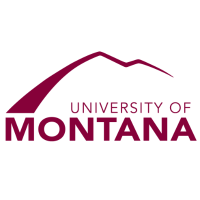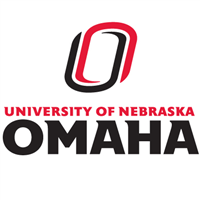What do they do?
Teach vocational courses intended to provide occupational training below the baccalaureate level in subjects such as construction, mechanics/repair, manufacturing, transportation, or cosmetology, primarily to students who have graduated from or left high school. Teaching takes place in public or private schools whose primary business is academic or vocational education.
Also known as:
Adjunct Instructor, Adult Education Instructor, Adult Education Teacher, Architectural Drafting Instructor, Assistant Professor, Associate Professor, Automotive Instructor, Automotive Technology Instructor, Aviation Maintenance Instructor, Barbering Instructor, Building Trades Instructor, Business Education Instructor, CADD Instructor (Computer-Aided Drafting and Design Instructor), Carpentry Instructor, Clinical Instructor, Commercial Art Instructor, Computer Repair Instructor, Cosmetology Instructor, Drafting Instructor, Electrical Technology Instructor, Electronics Technology Instructor, Faculty Member, Flight Instructor, Gemology Instructor, HVAC Instructor (Heating, Ventilation, and Air Conditioning Instructor), HVAC-R Instructor (Heating, Ventilation, Air Conditioning, And Refrigeration Instructor), Industrial Electrical Technology Instructor, Industrial Maintenance Instructor, Instructor, Machine Tool Technician Instructor, Masonry Instructor, Massage Therapy Instructor, Mechanical Maintenance Instructor, Office Technology Instructor, Pipefitting Instructor, Professor, Residential Construction Instructor, Skin Care Instructor, Teacher, Technical Instructor, Technology Instructor, Upholstery Instructor, Vocational Horticulture Instructor, Vocational Instructor, Vocational Trainer, Welding Instructor
-
1.4%
Change
Ranks #44 in job growth rate200Job Openings
Ranks #24 in net job growth
-
Academy of Interactive Entertainment
Seattle, WA
-
Academy of Interactive Entertainment
Lafayette, LA
-
University of Nebraska at Omaha
Omaha, NE
-
The University of Montana
Missoula, MT
-
Southern Crescent Technical College
Griffin, GA
Looking for colleges that offer a specific major? Use the College Match Tool to find your best-matched schools and discover your estimated Net Price!
- Doctorate or Professional Degree (47%)
- Master's degree (31%)
- Bachelor's degree (15%)
- Associate's degree (2%)
- Some college, no degree (2%)
- High school diploma equivalent (2%)
- Less than high school diploma (1%)
Most Popular Majors that prepare Career/Technical Education Teachers, Postsecondary
-
#1
-
Degrees Granted
53
-
Female Students
22
-
Male Students
31
-
Median Starting Salary
$42,300
-
-
#2
-
Degrees Granted
26
-
Female Students
12
-
Male Students
14
-
Median Starting Salary
$42,300
-
-
#3
-
Degrees Granted
11
-
Female Students
6
-
Male Students
5
-
Median Starting Salary
$42,300
-
People in this career often have these skills:
- Active Listening - Giving full attention to what other people are saying, taking time to understand the points being made, asking questions as appropriate, and not interrupting at inappropriate times.
- Learning Strategies - Selecting and using training/instructional methods and procedures appropriate for the situation when learning or teaching new things.
- Instructing - Teaching others how to do something.
- Reading Comprehension - Understanding written sentences and paragraphs in work-related documents.
- Speaking - Talking to others to convey information effectively.
- Active Learning - Understanding the implications of new information for both current and future problem-solving and decision-making.
- Critical Thinking - Using logic and reasoning to identify the strengths and weaknesses of alternative solutions, conclusions, or approaches to problems.
- Writing - Communicating effectively in writing as appropriate for the needs of the audience.
- Monitoring - Monitoring/Assessing performance of yourself, other individuals, or organizations to make improvements or take corrective action.
People in this career often know a lot about:
- Education and Training - Knowledge of principles and methods for curriculum and training design, teaching and instruction for individuals and groups, and the measurement of training effects.
- English Language - Knowledge of the structure and content of the English language including the meaning and spelling of words, rules of composition, and grammar.
- Mechanical - Knowledge of machines and tools, including their designs, uses, repair, and maintenance.
- Customer and Personal Service - Knowledge of principles and processes for providing customer and personal services. This includes customer needs assessment, meeting quality standards for services, and evaluation of customer satisfaction.
- Mathematics - Knowledge of arithmetic, algebra, geometry, calculus, statistics, and their applications.
- Administrative - Knowledge of administrative and office procedures and systems such as word processing, managing files and records, stenography and transcription, designing forms, and workplace terminology.
- Engineering and Technology - Knowledge of the practical application of engineering science and technology. This includes applying principles, techniques, procedures, and equipment to the design and production of various goods and services.
- Computers and Electronics - Knowledge of circuit boards, processors, chips, electronic equipment, and computer hardware and software, including applications and programming.
- Administration and Management - Knowledge of business and management principles involved in strategic planning, resource allocation, human resources modeling, leadership technique, production methods, and coordination of people and resources.
People in this career often have talent in:
- Oral Comprehension - The ability to listen to and understand information and ideas presented through spoken words and sentences.
- Oral Expression - The ability to communicate information and ideas in speaking so others will understand.
- Written Comprehension - The ability to read and understand information and ideas presented in writing.
- Written Expression - The ability to communicate information and ideas in writing so others will understand.
- Problem Sensitivity - The ability to tell when something is wrong or is likely to go wrong. It does not involve solving the problem, only recognizing that there is a problem.
- Speech Clarity - The ability to speak clearly so others can understand you.
- Deductive Reasoning - The ability to apply general rules to specific problems to produce answers that make sense.
- Speech Recognition - The ability to identify and understand the speech of another person.
People in this career often do these activities:
- Monitor student performance.
- Evaluate student work.
- Apply multiple teaching methods.
- Administer tests to assess educational needs or progress.
- Tutor students who need extra assistance.
- Maintain student records.
- Prepare reports detailing student activities or performance.
- Plan educational activities.
- Assess educational needs of students.
- Supervise laboratory work.
- Supervise student research or internship work.
- Teach vocational courses.
- Select educational materials or equipment.
- Maintain inventories of materials, equipment, or products.
- Develop instructional objectives.
- Advise students on academic or career matters.
- Attend training sessions or professional meetings to develop or maintain professional knowledge.
- Create technology-based learning materials.
- Perform student enrollment or registration activities.
- Serve on institutional or departmental committees.
- Schedule instructional activities.
This page includes data from:

 Occupation statistics: USDOL U.S. Bureau of Labor Statistics Occupational Employment Statistics
Occupation statistics: USDOL U.S. Bureau of Labor Statistics Occupational Employment Statistics






